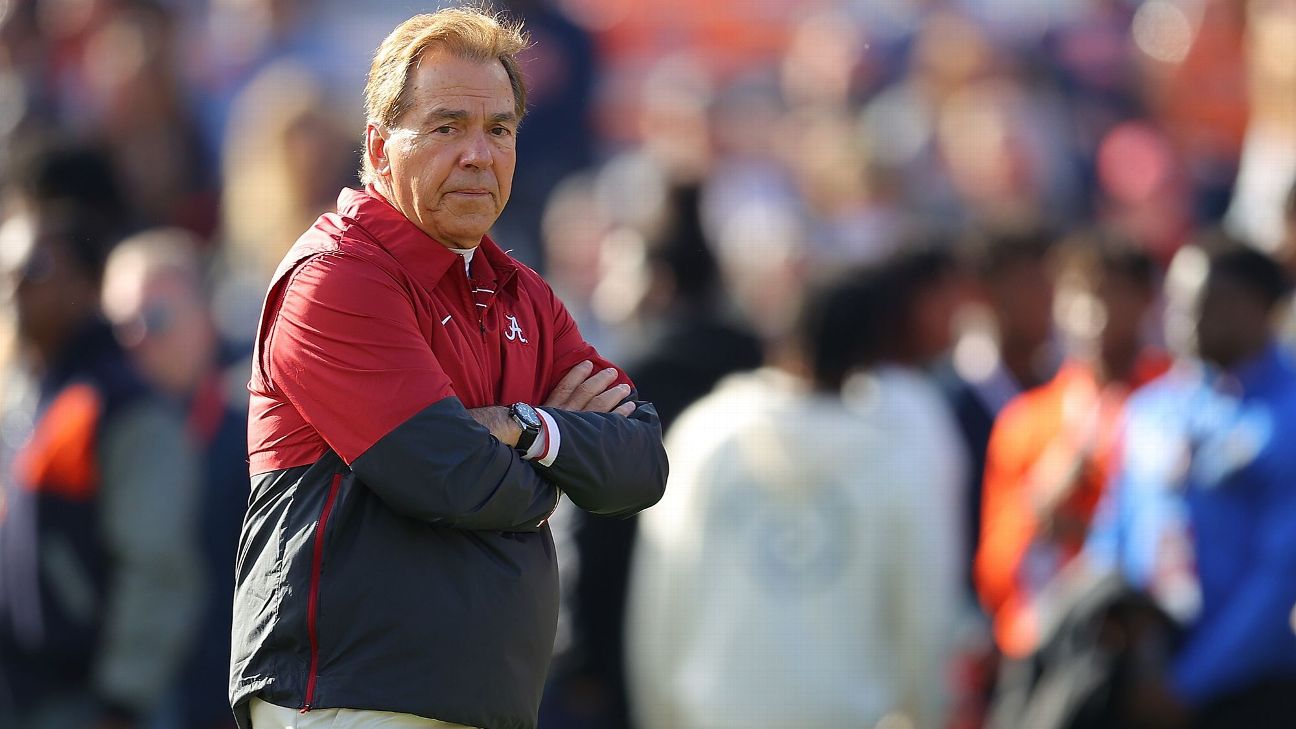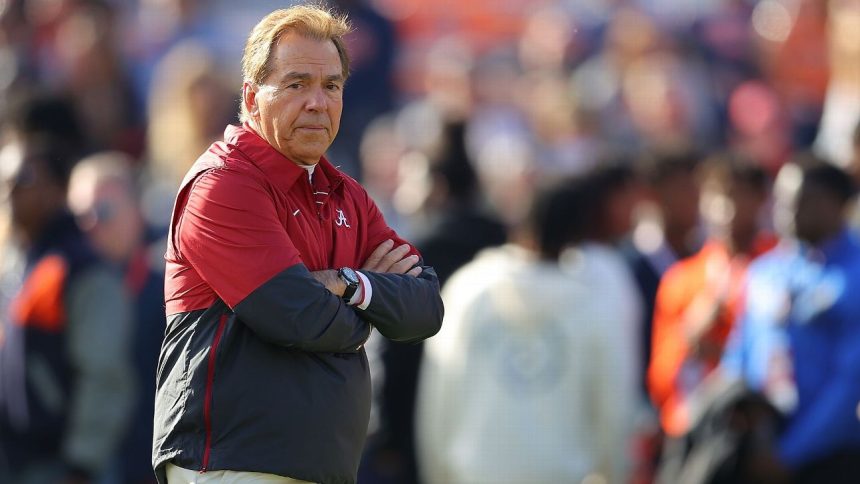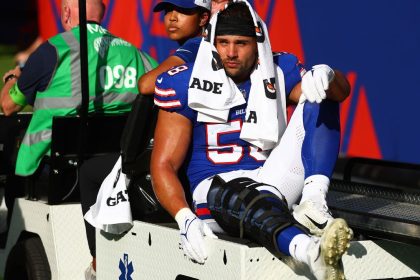
LOS ANGELES — Alabama coach Nick Saban said he isn’t worried about the possibility of Michigan stealing signs during the Rose Bowl Game presented by Prudential on Monday.
“We’re not really concerned about that,” he told reporters Sunday on the eve of the College Football Playoff semifinal.
Saban said they have had plenty of opportunity to prepare for the game. Besides, he added, being a team that likes to go no-huddle on offense, “You’ve got to adapt and adjust how you communicate with quarterback.”
But Saban did use the question about the Wolverines’ alleged sign-stealing operation, which resulted in a three-game suspension for coach Jim Harbaugh, to make a point about the integrity of the game, which he said is “really, really important.”
“Hopefully one day we’ll get to the NFL system where you can just talk to the guy’s helmet,” he said.
Headset communication, where coaches can speak directly to designated players on offense and defense, is only now gaining traction in college football. It’s being used on an experimental basis in non-CFP bowl games, so long as both coaches and their respective conferences agree on what systems to use.
But the semifinal games, as well as the national championship game on Jan. 8, won’t feature the technology. And unless the NCAA rules committee moves quickly this offseason, it won’t be available next season at all.
“I think that’d be a lot better,” Saban said of headset communication, “but for now we just have to adapt to how we communicate with the quarterback and change it up and try to not put our players in disadvantage in any way.”
Todd Berry, the executive director of the American Football Coaches Association, told ESPN earlier this season he was frustrated that headset communication wasn’t already the norm.
“This is too easy a problem to solve,” he said of alleged sign stealing.
The SEC and Big Ten have both studied the use of the technology in the past but have balked at implementation over fears of cost and voiding the warranties of helmets. But following the Michigan situation, there has been a groundswell of support.
LSU coach Brian Kelly said it was “silly” they aren’t using headset communication. Arkansas coach Sam Pittman said he’s “all for it” and that it would “take some of that [sign-stealing] out of the game and make sure that it’s all fair.”
Adding another wrinkle to the integrity issue in advanced scouting, Alabama players revealed last week that they had stopped using their iPads to watch film over fears that the data wasn’t secure.
In November, Michigan had taken similar precautions after what Harbaugh said were “rumors” it had heard about a breach.
Catapult, the company that handles video footage for college football programs, said in a statement Friday that the NCAA is conducting an investigation into an allegation that an unnamed college football program gained unauthorized access to its materials. But the company said it did not find a breach.
“We will continue to support the ongoing investigation with the NCAA and local authorities,” the statement read. “At Catapult, we hold ourselves to the highest of standards and safeguarding customer information is of utmost importance to us.”
A Michigan spokesperson said it is not being accused of the allegation and believed it was one of the schools targeted in the breach.










